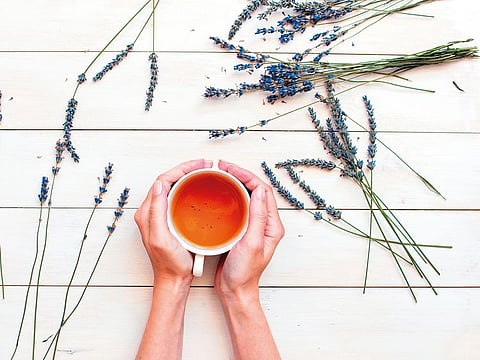Preparation and balance key to a transformative experience during Ramadan
A holistic guide to sustaining physical and mental vitality

The Holy Month is a sacred season and an invitation to reflect, renew, and grow spiritually. Beyond customary fasting rituals lies a transformative experience in which our minds, bodies and lifestyles are intricately connected. However, navigating this journey can often pose challenges to our health and well-being. Preparation and balance are key. Paying close attention to your health before, during and after Ramadan is not only essential for physical well-being but also for nurturing spiritual growth.
Pre-Ramadan
Prepare for the Holy Month by getting to know your body conditions and nutrient deficiencies to avoid any health risks during fasting.
Proper nutrition is also important to ensure that the body has enough energy to function throughout the day.
Make sure to eat nutritious foods filled with energy such as wholegrains, legumes and fruits.
During Ramadan
Nutrition
Break your fast with dates paired with natural fibre sources, like oats, brown rice and broccoli. This will help slow down sugar absorption and avoid blood sugar spikes and crashes.
Eat meals high in protein (chicken breast, salmon and lentils) and complex carbohydrates (quinoa and granola) to reduce glycaemic load (GL).
Gut problems can be avoided by ensuring your evening meal is eaten two hours before bed time. Drinking teas like ginger and lemongrass after meals will also aid digestion.
Drink enough water and fluids during meal-time to ensure good hydration.
Exercise and treatment
Engage in mild-to-moderate intensity exercises like yoga, Pilates and Tai Chi during this time to avoid excessive perspiration and an increase in appetite. These traditional exercises help to manage stress levels while enhancing mood and energy levels too.
Light pressure massages – like aromatherapy massages – help to relieve stress and physical tension.
Rest
Take a nap during the day to get some extra rest.
Drink herbal teas like lavender and chamomile before bed to promote good sleep.
Lifestyle
Spend time indoors to avoid unnecessary perspiration and exhaustion.
Try listening to relaxing sounds like meditative frequency, the soundtrack of nature and singing bowls to alleviate stress.
Post-Ramadan
Continue to care for yourself after Ramadan by gradually reintegrating your regular eating, sleeping and lifestyle habits while also maintaining the healthier choices made during the Holy Month.
Practices like sun-gazing early in the morning, starting the day with light exercise and using essential oils to promote good sleep will help restore the body’s circadian rhythm. Ramadan serves as a reminder that self-care extends beyond physical nourishment to encompass spiritual enrichment and personal growth. By embracing holistic wellness practices, we can fully harness the transformative power of this sacred month, deepening our connection with ourselves and nurturing our souls through acts of kindness, spirituality, and self-reflection.
As we enter this season of reflection and renewal, let us heed the invitation of Ramadan to prioritise holistic well-being, balancing body and mind in harmony with the spirit of this sacred time.

- The writer, Wsinee Sukjaroenkraisri is Executive Vice President Of Strategy and Programmes, RAKxa, a Thailand-based integrated wellness destination


